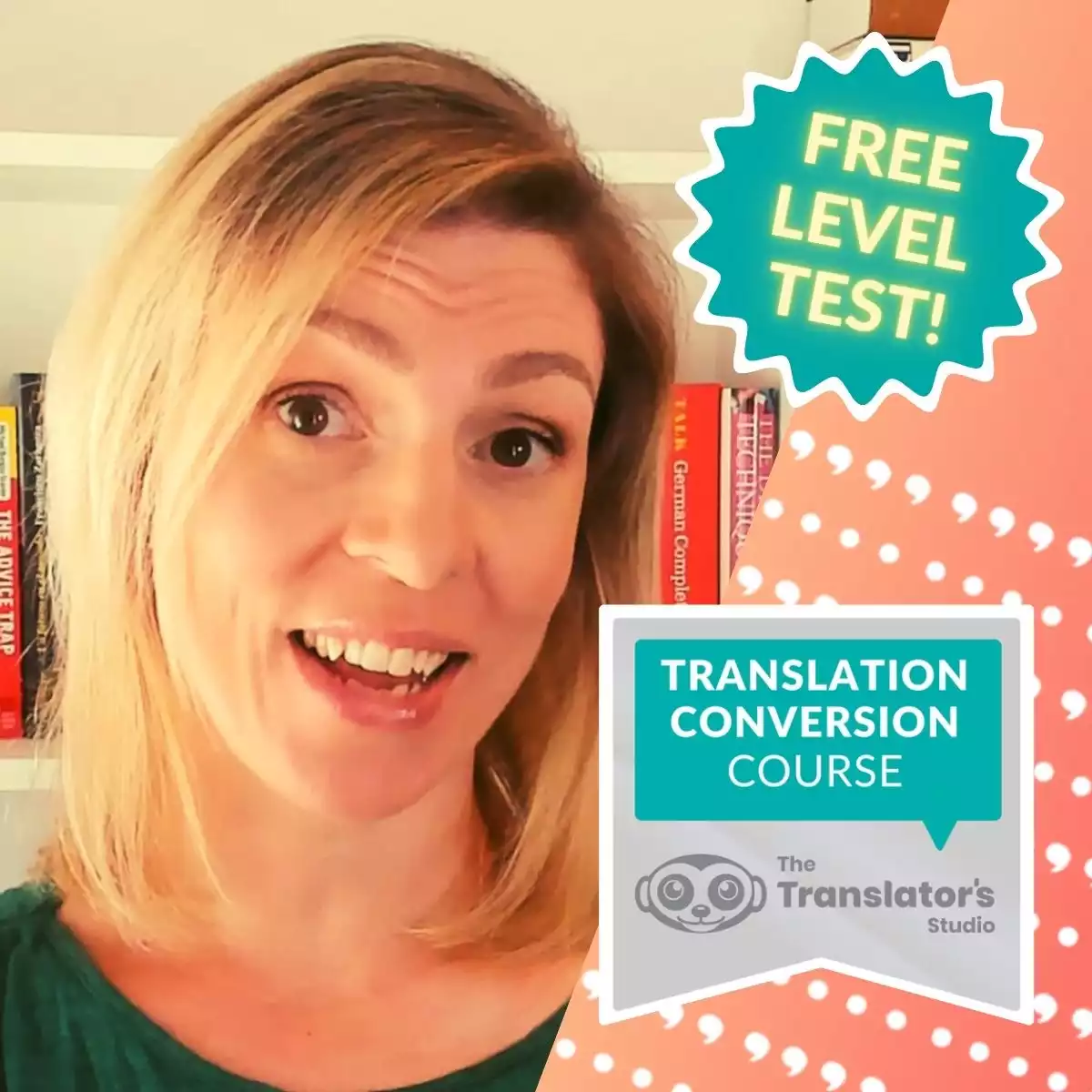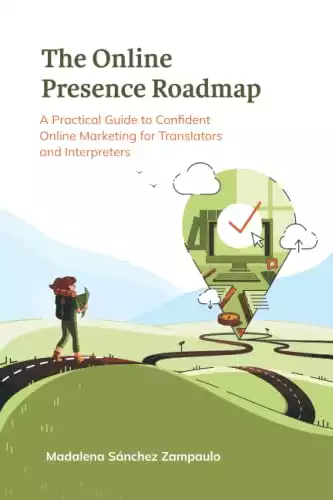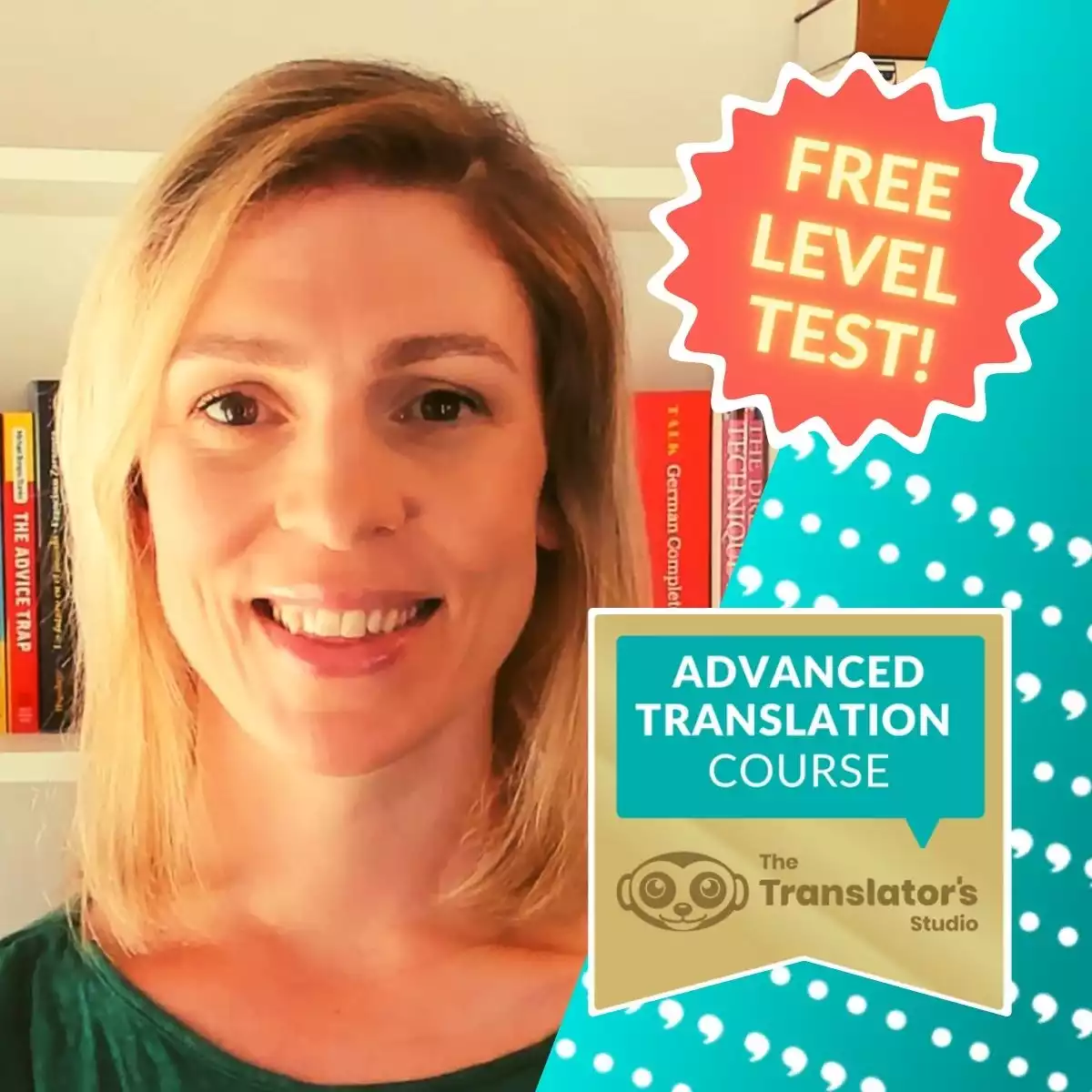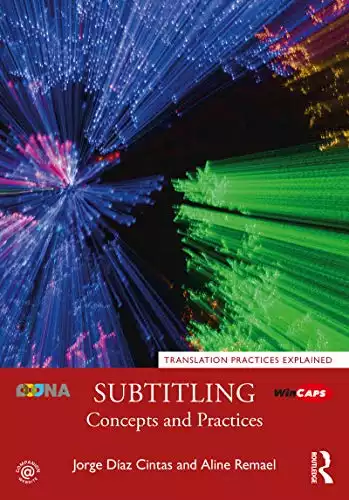I first heard about the TED translators program from a course mate who had gained volunteer experience translating with TED. At the time, I was on the Conversion Course offered by The Translator’s Studio and wanted to supplement my studies with professional translation experience. On researching the program, the flexibility and wide range of topics appealed to me immediately. So, I reached out to join the TED mentoring program (more about this later.)

If you’re a linguist keen to gain valuable experience translating and receiving feedback from knowledgeable translators, or anyone doing The Translator’s Studio translation courses, I urge you to read on and find out what it’s all about!
DISCLOSURE: We sometimes review or link to products and services we think you might find helpful. Wherever possible we use referral links. This means if you click one of the links and make a purchase, we may receive a small commission or other compensation.
- Become a confident professional translator
- Learn fast with our extremely detailed feedback
- Prepare for the CertTrans exam
- Get your translation certificate
What is a TED translator?
A TED translator is a volunteer linguist who transcribes, translates or edits quality subtitles for TED talks. TED translators are pivotal in enabling speakers of many different languages to access knowledge, research and new concepts originating from all around the world.
This information would otherwise be unavailable to them or poorly and incorrectly translated using machine translation without human checks. With over 40,000 volunteers translating into over 100 languages, the global community of volunteer TED translators is rapidly expanding.
What do TED translators do?
There are different roles within the TED program: translator/transcriber, reviewer and language supervisor. Translators or transcribers produce the subtitles, either in the original language of the TED talk (transcribing) or in the second language (translating).
Reviewers are more experienced linguists who provide reviews and feedback or advice to help less experienced volunteers improve.
TED’s website explains that language supervisors are experienced volunteers who advise on linguistic questions, help perform post-edits when needed, and participate in special TED projects.
Can TED translators get paid?
No, TED translators aren’t paid. But TED does put a lot of emphasis on “crediting” their translators. Your name and a link to your TED profile will appear on the ted.com talk page of every translation you work on.
Is TED a reliable organisation to work with?
TED is a non-profit organisation funded by donors, conference attendance fees, sponsorships, licensing fees and book sales. Its stated aims are “to foster the spread of great ideas … to provide a platform for thinkers, visionaries and teachers, so that people around the globe can gain a better understanding of the biggest issues faced by the world, and feed a desire to help create a better future.” For more information, see the TED website.
"I've hugely enjoyed volunteering with TED." Check out Work as a TED Translator – My Experience by Matt Leedham for The Translator's Studio. Share on XWhy volunteer as a TED translator?
There are lots of great reasons for volunteering as a TED translator to help subtitle TED talks. You get the chance to learn about a wide range of topics and find out how to use the subtitling platform CaptionHub. You’ll understand the specific challenges related to subtitling, and hone your skills in transcribing and translating. And you’ll gain crucial feedback from experienced linguists, all while broadening your cultural horizons.
New videos are published every week under the different categories in the TED-Ed educational initiative, and in the TEDx independently organised TED events. This means you’ll be volunteering in a candy store of new concepts in culture, business, science, tech and creativity.
Can being a volunteer TED translator lead to employment with TED?
Though there is no direct pathway for volunteers to become paid employees, there are opportunities to progress within the TED network of volunteers. Once a translator has had 10 sets of subtitles published, they have the option to become reviewers. Then, when they’ve had 40 sets of subtitles published, they can become language supervisors.
I did notice a recruitment section on the TED website for a wide range of positions, including ones related to languages and content. So, I suppose there could be potential for volunteering to lead to employment with the company.
What sorts of subjects do you translate about?
There are thousands of TED-Ed and TEDx talks from around the world available to translate on TED’s subtitling platform. They cover all manner of topics.
By way of example, I’ve translated talks on biodiversity and coffee in New Caledonia, the life of a graffiti artist in the French overseas island of Réunion, anticipation in elite tennis players and the concept of ‘uberising’ the State. I also transcribed a talk by a Grenoble-based environmentalist adventurer.
After a few months away to prepare for the DipTrans post-graduate translation exam (I’m now on the advanced translation course with The Translator’s Studio), I’ve returned to the platform and am currently working on a talk on Veganism from a locally organised event in Cannes, France. On the subtitling platform, you can search videos by title or topic and filter results according to your interests.
- Become a more successful translator
- Learn fast with extremely detailed feedback
- Prepare to pass the CIOL DipTrans exam
- Get your advanced translation certificate
Did you get useful feedback on your translations?
The feedback I received from TED was very useful and gave me an insight into some of the challenges specific to subtitling. During the months of my mentorship, I was in regular contact with my mentor. She gave very helpful advice and guidance on specific linguistic doubts and to help me get the subtitles passed on for approval.
For example, at first I found myself exceeding the character constraints when trying to stay too close to the original language script. Other times, I was inappropriately separating what they call “linguistic wholes” that had to be kept together.
For linguists with a background in translating texts, it must be said that subtitling is a skill in itself with its own unique set of challenges and solutions. Time is a significant constraint because the limit is 21 characters per second of screen time, to give viewers enough time to read.
This means that very fast speakers or talks with specific culturally bound concepts sometimes force you to simplify things in a way you probably wouldn’t in regular translation.
Do you need translation qualifications to become a TED translator?
Officially, there are no translation qualification requirements to join the volunteer program. The key skill TED requires is fluency in the source and target languages. That said, it’s hugely beneficial to have a theoretical translation background to help you with the mechanics of translation.
TED provides guidance on how to break lines and compress subtitles, which are useful. For me, the training I’ve received from The Translator’s Studio has been invaluable in providing the foundations to hone and further develop my skills with TED.
- Become a confident professional translator
- Learn fast with our extremely detailed feedback
- Prepare for the CertTrans exam
- Get your translation certificate
Do TED translators need to know how to use any special software?
CaptionHub is the platform where TED talks are made available. There, volunteers can download and edit source language transcriptions. It’s easy to use and TED provides guides and training on how to use it.
The main things to get to grips with are the tools to delete and create new subtitle line segments, and the timing bar you’ll use to pause and play the video. I found it fairly intuitive, but in any case there are guides online explaining how to use the platform.
What was the best thing about being a TED translator?
I’ve hugely enjoyed volunteering with TED. The instant availability of a variety of talks in different languages means you can access content from around the world. In my case, I enjoy being able to translate for English-speaking audiences.
That said, perhaps the most beneficial part of the program was the mentoring. This is crucial for having direct contact with experienced linguists and for eventually getting your subtitles published.
When you sign up, you have the opportunity to find a mentor. After I contacted a few experienced reviewers for my language combination, one agreed to mentor me. She was extremely helpful and supportive, gave speedy feedback and helped me get a few sets of subtitles published.
Over a three-month period, mentors review translations, give feedback, help iron out any issues, and approve the subtitles ready for publication. Note that the mentoring program appears to be currently on pause as they “transition to a new format”.
When I started out, the subtitles had to pass two validation checks by two different translators before being published. But I notice that has changed recently, as only one other translator is now required to carry out the review and approval steps. This will speed up workflow and your ability to get work published.
Is there anything you didn’t enjoy so much?
One of the frustrating things about working on subtitles for TED talks can be the delay in waiting for reviewers to get back in touch. It can even be difficult to find a reviewer to check and approve your work.
In less frequent language combinations, translators may have to wait a while for their work to be reviewed. That’s why it’s crucial to find a mentor who’ll make sure your work is reviewed and approved.
Did being a TED translator allow you to network?
Yes, the TED translator network is vast. So, it gives you a great opportunity to contact experienced linguists who you can learn from. There’s a volunteer translator Facebook group with some 40k members run by a community support specialist. Volunteers often post project-related questions there and it’s a good way of connecting with other translators.
Would you recommend becoming a TED translator?
I would definitely recommend becoming a TED translator. It’s been hugely beneficial to me as an aspiring translator. You get content to work on, knowledge and new ideas, not to mention helpful volunteers to work with and the opportunity to have subtitles published.
For busy people juggling a hectic schedule, translating with TED offers a pleasant change as there are no deadlines for working on talks. I think if work has been claimed and not finished, after a while another linguist can take it on. In my case, I’ve had a few months away from TED owing to other demands, but you can easily pick up again from where you left off when you return.
How do you become a TED translator?
It’s very easy to become a TED translator. As long as you’re fluent in two languages, you don’t have to do much before you can start translating. You just have to pass their onboarding application quiz (multiple choice questions on subtitling) and review the TED guidelines and best practices.
The organisation has created an extremely accessible process for aspiring translators to obtain vital experience in the practice of translating. My own time spent on The Translator’s Studio Conversion and Advanced Courses have given me a very strong theoretical foundation, as well as regular practice on difficult texts.
As a result, I’ve already seen a huge improvement in my own translating ability since I started off subtitling 12 months ago.
|
|
- Become a confident professional translator
- Learn fast with our extremely detailed feedback
- Prepare to pass the CertTrans exam
- Get your translation certificate
- Network in our private Facebook group
- Become a more successful translator
- Learn fast with our extremely detailed feedback
- Prepare to pass the CIOL DipTrans exam
- Get your advanced translation certificate
- Network in our private Facebook group
Are there any similar organisations that offer volunteering opportunities?
From what I can gather, it seems few organisations offer similar opportunities for translating voluntarily. Translators without Borders is one option. Their work has a humanitarian and developmental purpose and their global community brings together 80,000 linguists. Check out the article on this site by Rana Shabibi on her experience of volunteering as a translator Translators without Borders.
Join our Spanish- and French-to-English translation courses
Matt was a student who progressed through our conversion and advanced courses to eventually prepare for the DipTrans exam. He told us he felt our courses “provided the preparation and skills necessary to sit the Dip Trans exam, and a foundation for setting up as a freelance translator”.
Get your free level test and come and join our community of budding and experienced translations.
Read Lucy William’s story about how she became a translator.









0 Comments